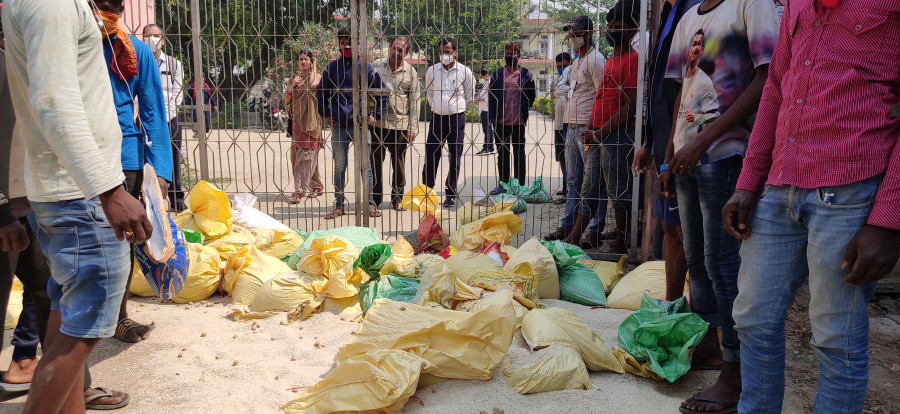Editorial
Quality control in action
Sporadic stunts and photo ops in the presence of the media are not going to help.
Dashain is just around the corner, and it is photo-op time for officials of the Department of Food Technology and Quality Control. From now until Tihar, we will see photos and videos of men and women in white shirts and blue pants dumping what they claim are expired food items. From cooking oil to noodles, and chocolates to biscuits, everything goes into the pit. So hurried is the entire process that the officials often do not find the time to separate the plastic wrappers from the food items. In a hurry to save humans from eating substandard food, officials end up feeding Mother Earth the non-biodegradable waste that 21st century humankind has not found sustainable alternatives for.
The sale of expired as well as adulterated food items is rampant all over the country even as the government's quality watchdog remains in hibernation for much of the year, only to spring into action right before festivals. And whenever they get back to work, the officials almost always find significant cases of discrepancies. This means that the quality control should be a year-round exercise rather than sporadic overaction before and during festivals. Of course, Nepalis spend on and consume food items at an abnormal rate during the holiday season, but the health and consumer rights of the people should be a priority throughout the year.
If the questionable quality of food items was not enough, the price of such items has also gone through the roof lately. Consumers are now reported to be paying Rs250 for a kilo of leafy vegetables in a country where saag is not usually considered a luxury. At a time when the earnings of consumers have dried up owing to the ongoing effect of the Covid-19 pandemic, the government's inability to check inflation is grossly criminal. The long spell of the monsoon, which disrupted the production capacity of farmers within the country as well as the transportation system, has impacted the price of food grains and vegetables. Add to that the indifference on the part of the government, and we have a situation of food prices rising and consumers' purchasing power dipping.
As usual, the authorities have paid lip service that they will work to bring down prices. They have also set up some fair price shops at street corners here and there as they do each year during the Dashain-Tihar-Chhath festival season. But it is no news that these efforts are hardly sufficient to solve the ever-increasing problem of inflation. The authorities should focus on solutions that last: Bring unscrupulous traders to book, monitor the market regularly, facilitate the marketing of local products, expand the number of cold stores, and help fix the price of goods in a way that does justice to consumers as well as retailers.
If the authorities do not focus on sustained monitoring and finding long-term solutions for quality control of food items as well as regulation of food prices, sporadic stunts and photo ops in the presence of the media are not going to help.




 9.7°C Kathmandu
9.7°C Kathmandu














